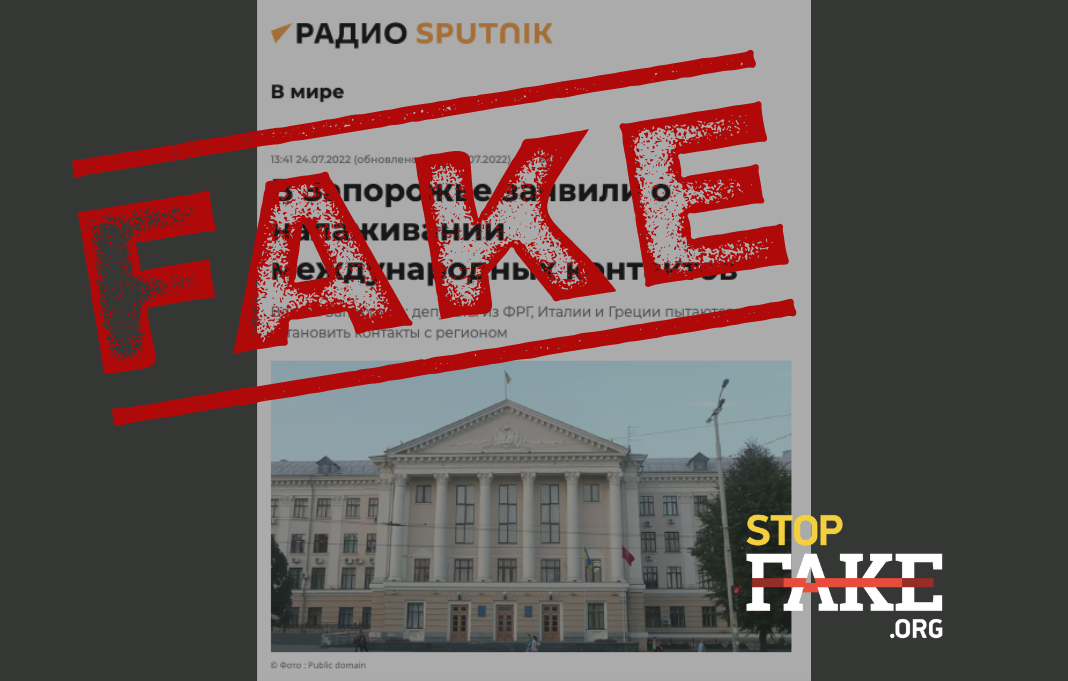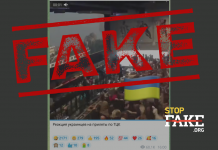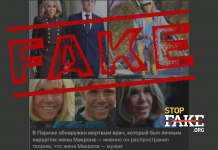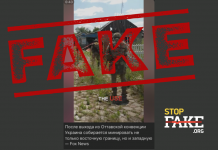The international community does not recognize occupied Crimea or other Ukrainian occupied territories as independent republics, or the territory of Russia. Vladimir Rogov, quoted by Russian propaganda about alleged international contacts, is under European sanctions for threatening the territorial integrity and sovereignty of Ukraine, and has no authority to “establish contacts” with anyone, because he does not represent any official authorities.
A number of Russian media featured “news reports” quoting Russian collaborators from the Zaporizhzhia region who announced that the temporarily occupied territories are allegedly “establishing international contacts.” According to the Russian government’s proxy, the occupants in the region began to receive “statements from parliamentarians in Germany, Spain, France, Greece, and at least fifteen countries who are worried about us and support us”.
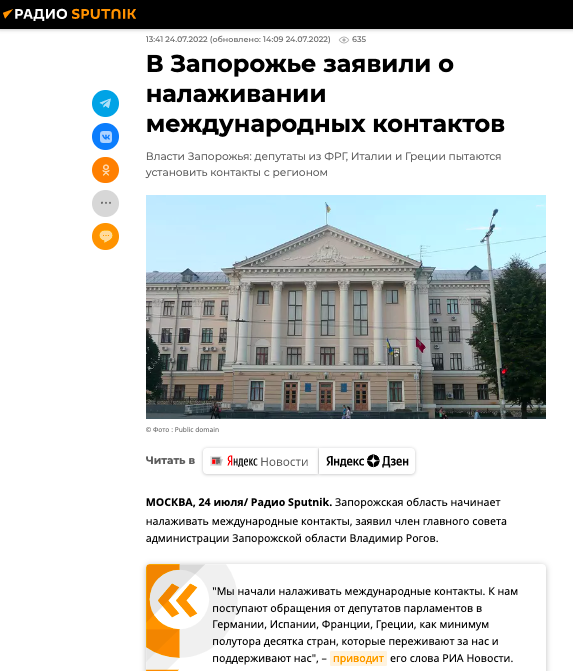
One Vladimir Rogov, cited by Kremlin websites, claimed that these contacts would not be made public in order to “avoid political persecution of these individuals in their countries” and that it wouldn’t be possible to “to deprive everyone of their own opinion in Europe, as the truth is breaking through more and more often”.
In reality, international relations with Ukraine’s temporarily occupied territories are impossible. The international community has not and does not recognize occupied Crimea or other temporarily occupied Ukrainian territories as the territory of Russia or as independent republics.
EU leaders have repeatedly demanded Russia to immediately stop its military actions, unconditionally withdraw all troops and military equipment from Ukraine, and fully recognize its territorial integrity, sovereignty and independence. In response to Russia’s international crimes, EU countries have imposed and continue to impose multiple sanctions (7 packages as of the end of July 2022), including economic sanctions, diplomatic measures, personal sanctions, which include occupation authorities representatives.
“The EU strongly condemns Russia’s indiscriminate attacks on civilians and civilian infrastructure and calls on Russia to immediately and unconditionally withdraw all of its troops and military equipment from all of Ukraine within its internationally recognized borders” the Council of Europe said when it adopted the new sanctions package in late July 2022.
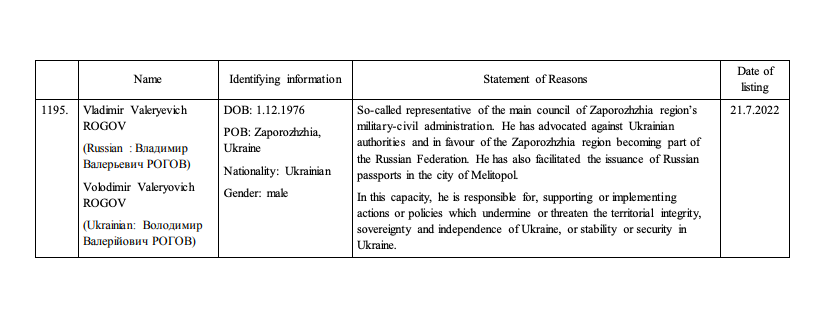
No European country has declared its willingness to cooperate with the temporarily occupied regions of Ukraine. On the contrary, the EU imposes sanctions against those who cooperate with Russia and collaborate with the occupation authorities. Zaporizhzhia collaborator Vladimir Rogov even wanted to use his being put on the sanctions list to push a manipulative narrative about Zaporizhzhia “being recognized” as part of Russia. He wrote that “the EU officials question my belonging to the civil-military administration, but do not question the civil-military administration itself. Thereby they recognize its legitimacy and Russia’s sovereignty over Zaporizhzhia region”.
But even this is not true. Rogov, like many others, was included in the new sanctions package in response to him “supporting or implementing actions or policies which undermine or threaten the territorial integrity, sovereignty and independence of Ukraine, or the stability or security in Ukraine”. There is no mention of any agreements or “international contacts” with the sub-sanctioned collaborationist authorities.
StopFake has repeatedly refuted Rogov’s statements, which the Russian media portrayed as the “official position” of Zaporizhzhia and the region. Read about it in: Fake: Zaporizhzhia Rules Out Returning to Kyiv Control, Fake: Zaporizhzhia Authorities called the arrest of a Russian vessel in Turkey ‘piracy’, Fake: Ukraine is ready to ‘surrender’ Zaporizhzhia to Russia and others.


